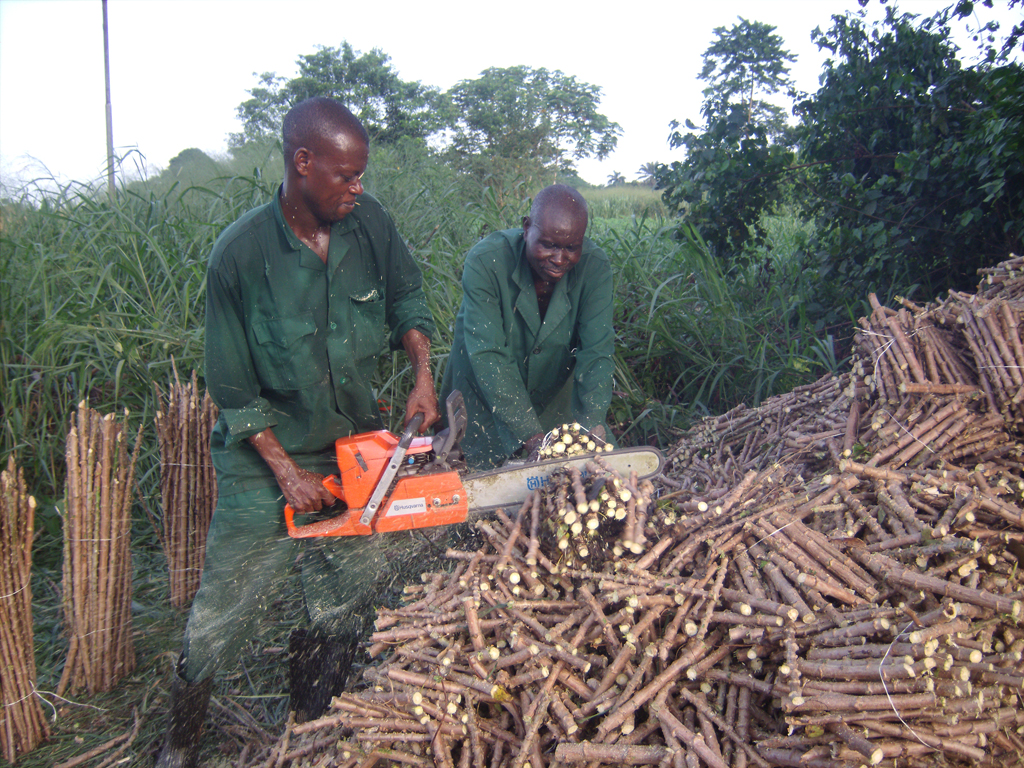Overview
Researchers
Jonathan Robinson
Associate Professor of Economics, University of California, Santa Cruz
Alan Spearot
Associate Professor, Department of Economics, University of California Santa Cruz
Guanghong Xu
Ph.D. student at the University of California, Santa Cruz
Shilpa Aggarwal
Assistant Professor in the Economics and Public Policy at the Indian School of Business (ISB)
- Country
- Rwanda
- Timeline
- 05/01/2022 - 03/01/2024
- Previously Funded Stages
- Pilot
- Constraints
- Information, Input and Output Markets
- Technology Category
- Crop Quality Measure, Improved Seed

Technicians cutting cassava stems into mini stems. Photo credit: Richardson Okechukwu | Flickr.com
Despite consumer demand for high-quality food products, small-scale producers in low- and middle-income countries often do not produce them. Research shows that producers respond to quality incentives, and will invest more in higher-quality inputs to meet consumers’ demand for quality when they receive prices that reflect the quality gains. However, farmers may not be able to make relevant investments in production due to a lack of access to high-quality inputs because they are far away or they cannot ascertain the quality of a given input. In partnership with the International Institute of Tropical Agriculture (IITA), researchers are conducting a pilot to establish a quality certification system, focusing on cassava-producing cooperatives in Rwanda. While cassava can be planted from seed, it is much more common for farmers to replant cuttings from mature plants. Cassava cuttings in Rwanda are sometimes infected by brown streak disease or cassava mosaic disease. These diseases are difficult to diagnose with the naked eye and substantially reduce cassava yields and, subsequently, farmers’ profits.
Prior to the season, participating cooperatives will receive training on farming practices and high-quality cassava seeds to distribute for planting. During harvest, these cooperatives will receive certification that their cassava harvest is free from disease upon completion of multiple on-site inspections. Villages near participating cooperatives will receive information about why it is advantageous to buy certified cassava and where to find it. Researchers will measure the impact of a quality certification market for cassava cuttings on crop disease, as well as profits and yields of cooperatives, cassava planting, and sourcing decisions of local farmers.
This pilot is ongoing, and findings are forthcoming.